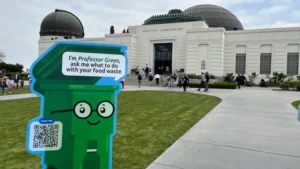Key Takeaways
- Over 1,800 NSF employees learned they would be displaced as HUD takes over their Alexandria headquarters.
- The American Federation of Government Employees criticized the move, alleging misuse of taxpayer dollars.
- Concerns grow about the future of NSF as its budget faces substantial cuts amid the relocation.
Unexpected Relocation of NSF Employees
On June 24, more than 1,800 employees at the National Science Foundation (NSF) were informed of their impending displacement from the agency’s Alexandria, Virginia headquarters. This decision was confirmed the following day during a HUD press conference, where it was announced that HUD would take over the NSF building “as quickly as possible,” according to Michael Peters, Commissioner of the Public Buildings Service for the General Services Administration (GSA).
Employees expressed shock over the announcement, particularly since NSF had moved to this newly-built facility only in 2017. Protests erupted the next day as NSF staff gathered outside, chanting slogans like “We won’t go!” and expressing their frustration with the decision. “This is bulls—,” stated one unnamed employee to Washington’s News4.
Inside the building, HUD officials framed the move as part of the Trump administration’s agenda to enhance federal efficiency. HUD Secretary Scott Turner remarked that the agency was “excited to have a new home to deliver excellent services,” as approximately 2,700 HUD employees are expected to transition to the NSF building from their current headquarters, which has not been updated since the 1960s.
However, the relocation plan has not received unanimous support. The American Federation of Government Employees (AFGE), which represents many NSF employees, denounced the decision as a “callous disregard for taxpayer dollars and NSF employees.” The union further alleged that HUD’s new building would include luxuries like a private executive suite and a custom gym, which Turner denied, calling this claim “ridiculous.”
Senator Maria Cantwell (D-Washington) criticized the administration’s actions, arguing that it compounds issues for NSF employees during a time of significant budget cuts. She noted that the administration was advocating for a 55% budget reduction for NSF while displacing staff. Cantwell emphasized the importance of investing in scientists and innovation to maintain America’s global competitiveness.
Similarly, members of the House of Representatives’ Science, Space and Technology Committee condemned the move, stating it exemplifies “egregious, corrupt, and disgraceful abuse of power.” Representative Zoe Lofgren (D-California) remarked that this decision harms dedicated scientists and taxpayers while benefiting international competitors.
The timing of this announcement adds to the uncertainties surrounding NSF. Founded in 1950, the agency has been pivotal in advancing science and technology in the United States, contributing to innovations ranging from barcodes to observing gravitational waves. Yet, in the past six months, the Trump administration has frozen or terminated over 1,600 NSF grants, signaling a troubling trend for the agency’s future.
As the GSA takes charge of relocating displaced NSF employees, it remains to be seen how and where they will be moved. Some employees had only recently returned to Virginia after a court decision reversed earlier dismissals. Virginia Governor Glenn Youngkin expressed his hope that the NSF would remain in the commonwealth, albeit at a different site. For now, GSA has committed to supporting NSF in finding a solution that allows the agency to fulfill its mission, though details remain unclear, and NSF declined to comment on the situation.
The content above is a summary. For more details, see the source article.















